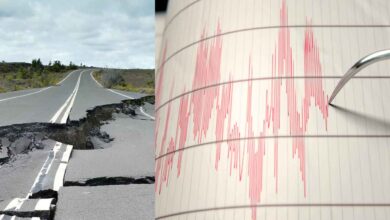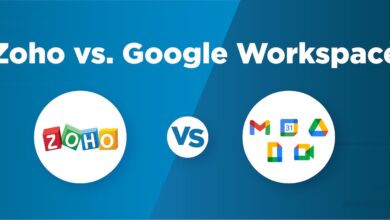COVID-19: Why entrepreneurs should invest in building a brand, and not chase sales?
While this might be a testing time for entrepreneurs and employees alike, it is unmistakably a time of questioning the assumptions, relooking at the fundamentals of work, life, business, and society, and embrace change.
Especially for the entrepreneurs, this period would certainly offer time and rationale for some deep introspection and course correction.
At present, there are mainly two approaches one could take — first, see it through and hope that this too shall pass, and second, act and seize the moment, believing that this may not happen again.
I am interested in the latter approach for the simple reason that inaction is not a choice here, and neither is the hope that things would go back to normalcy soon. Never have they, and especially after such wide-scale upheavals.
In this article, I argue why this period is perfect for establishing a robust brand and not chase sales, and how the pragmatic entrepreneur can seize the opportunity without getting regretful.
Brands lower perceived risk. You are more likely to sip from a bottle of water with a Bisleri label on it than one without any label. Water is water. Or, maybe not. According to Forbes, the World’s Most Valuable Brands are Apple, Google, Microsoft, Amazon, Facebook, Coca-Cola, Samsung, Disney, Toyota, and McDonald’s.
Apple is on the very top, even after almost a decade of Steve Job’s departure. Toyota is in the top ten in spite of millions of vehicle recalls over the years, and so has Samsung, standing against the global fiasco with Galaxy Note 7.
Not to mention Google Glass, Amazon Fire Phone, Microsoft’s failed acquisition of Nokia’s mobile phone business, and Facebook’s run into Cambridge Analytica.
How did these brands remain so valuable in the face of public blunders? Or maybe the right way to look at the conundrum is to think of their brand power as offering the license to take risks, failing once in a while on their way to breakthroughs.
An enduring brand is not just meant for drawing a premium from your customers, but also, secure preferred investments, and to attract the best of the talent to work for you.
With its acceptance rate of 0.2 percent, Google is more difficult to get into than the venerable Harvard Business School. Little doubt, most of the best brands also feature as the Best Companies to Work For.
They secure the most coveted slots at the campus placements, have longer employee tenure, better peer perception, and tend to regularly feature as some of the World’s Most Innovative Companies.
A brand identity can outlive an entire organisation, as is known in the case of Polaroid, Eastman Kodak, Lehman Brothers, Kingfisher Airlines, and Jet Airways, to name a few.
Buying time to experiment with the business model
There are just about a few businesses that have not gotten impacted adversely due to COVID-19. You can think of groceries and vegetables as two relatively inelastic sectors, but the rest have been adversely hit.
With drying cash in the marketplace, the pursuit of sales, or new customer acquisition, would invariably result in frustration.
We have collectively slipped down on Maslow’s hierarchy of needs, from self-esteem and self-actualisation to safety and physiological needs. In such scenarios, asking people to spend on you would be too much to demand. So, what’s the resort? Should you shut shop and remain put? Certainly not.
You must now experiment, for the cost of failure cannot be any lower. No one would mind you failing. Try out not just new products or services, but see if a new business model would make more sense.
If you were operating a full-blown restaurant till now, how about piloting a cloud kitchen? If you were into bookselling business, how about experimenting with a book club or a community library for kids, for they are getting bored sitting at their homes? The possibilities are endless.
Pursuing sales would be a loose-loose situation. You might be pushed to discount your offerings, and, in turn, your brand, and the customer will not appreciate the value either.
Instead, put your scant money and efforts into building brands creatively. You can hard bargain on the budget for website development, or putting up a YouTube video, or getting a media slot. Everyone needs money, and you can channelise your funds in a hard-nosed manner.
You can employ scores of freelancers to create content, getting your business up on social media platforms, and even get some useful traction. You can pivot more often than during ordinary times, for your mistakes will not be as costly, and your customers would be more relenting.
Leveraging the power of ‘free’
Difficult economic situations call for frugal means of brand building, and amidst the ongoing pandemic, there is no dearth of such opportunities. Right from helping people with food and medical aids, to providing free ambulances, keeping masses motivated, providing useful lifestyle advises, the list goes on.
If you pay attention, there is a wide array of avenues available for entrepreneurs to engage with, mostly prosocial causes. The key, however, is to not confuse learning with earning.
One must leverage the ‘power of zero.’ Free can excite like no other thing, especially in a money starved economy and spirit starved society, that we are increasingly witnessing.
Whenever the COVID-19 vaccine come up, over a billion doses would need to be administered in India alone, and this would be a cold supply chain. How can your organisation participate in the largest and most complex logistics drive in the history of the world?
For an ecommerce company like Flipkart or Amazon, it is a once-in-a-lifetime opportunity (and hopefully so). They can put their supply chains and warehousing facilities through the ultimate stress test. The sooner citizens (read potential customers) get inoculated, the quicker would be India’s economic recovery, ushering a decade of meteoric growth.
There is so much pent up demand that would get unleashed, in areas like tourism, hospitality, entertainment, fashion, retail, education, commerce, real estate, and in all possible sectors.
And you do not want to be late to the party. So, instead of waiting for things to turn around, why not chip right in with whatever little you can, and build robust competencies and a brand in the bargain?
In summary, spend your scarce monetary resources and aplenty time in building a brand for your business, engage in some prosocial cause, and do some good so that when the economy bounces, you are more ready than otherwise to participate in arguably the grandest bull run in recent history.
Source: Yourstory




